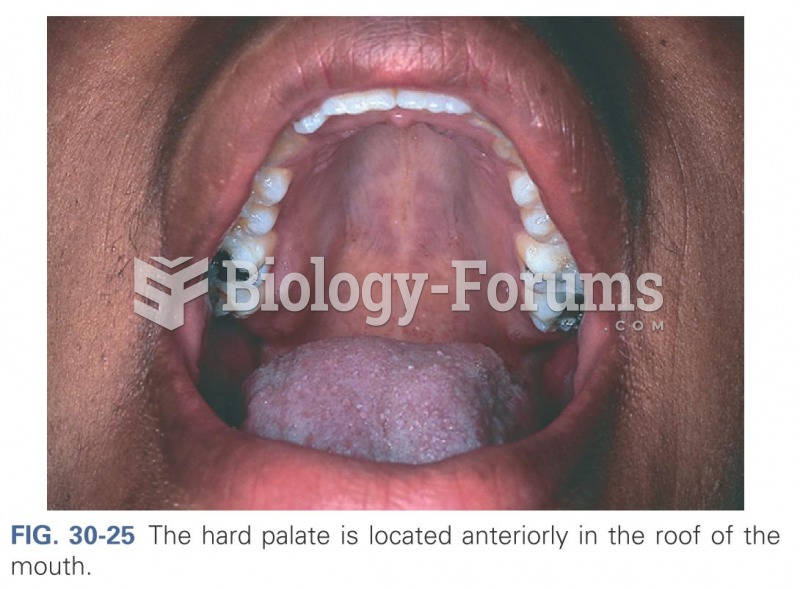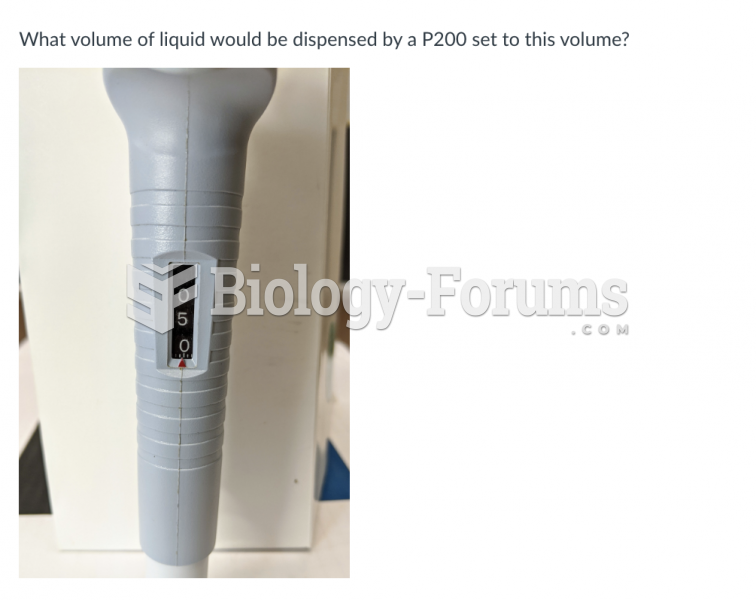|
|
|
Patients who cannot swallow may receive nutrition via a parenteral route—usually, a catheter is inserted through the chest into a large vein going into the heart.
Hip fractures are the most serious consequences of osteoporosis. The incidence of hip fractures increases with each decade among patients in their 60s to patients in their 90s for both women and men of all populations. Men and women older than 80 years of age show the highest incidence of hip fractures.
HIV testing reach is still limited. An estimated 40% of people with HIV (more than 14 million) remain undiagnosed and do not know their infection status.
People with high total cholesterol have about two times the risk for heart disease as people with ideal levels.
Earwax has antimicrobial properties that reduce the viability of bacteria and fungus in the human ear.
 Storage devices (A) External hard-disk drive (B) USB drive (C) Memory card (D) Optical disc (DVD) ...
Storage devices (A) External hard-disk drive (B) USB drive (C) Memory card (D) Optical disc (DVD) ...
 a) Using a soft pillow rather than a hard bolster under the knees will reduce pressure on the back ...
a) Using a soft pillow rather than a hard bolster under the knees will reduce pressure on the back ...
 Create a soapy lather with the hands and spread the soap up to the elbows. Liquid soap is preferred. ...
Create a soapy lather with the hands and spread the soap up to the elbows. Liquid soap is preferred. ...




